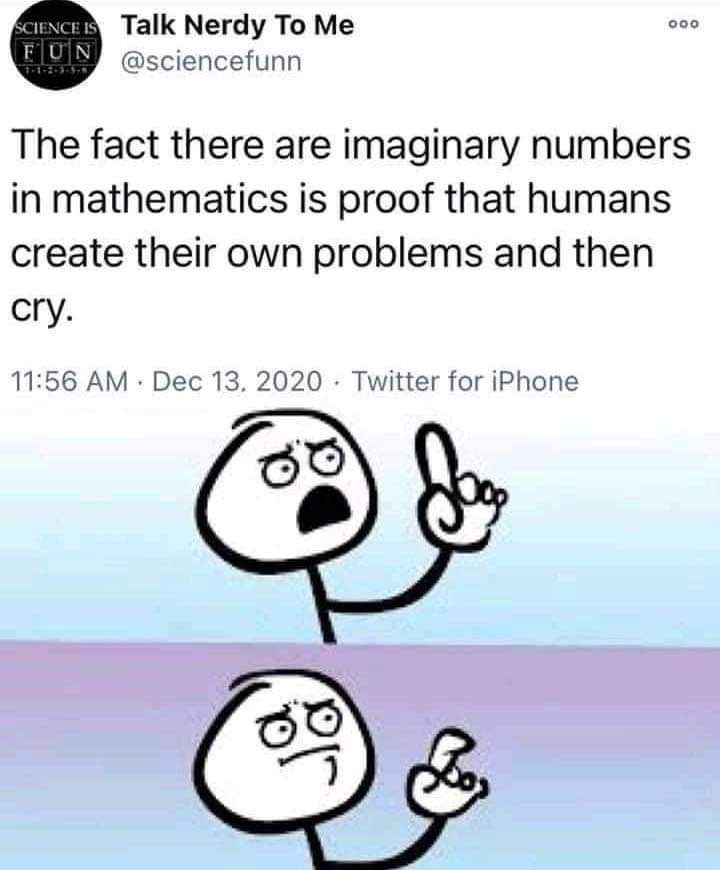this post was submitted on 16 Sep 2024
710 points (93.2% liked)
memes
10406 readers
2326 users here now
Community rules
1. Be civil
No trolling, bigotry or other insulting / annoying behaviour
2. No politics
This is non-politics community. For political memes please go to !politicalmemes@lemmy.world
3. No recent reposts
Check for reposts when posting a meme, you can only repost after 1 month
4. No bots
No bots without the express approval of the mods or the admins
5. No Spam/Ads
No advertisements or spam. This is an instance rule and the only way to live.
Sister communities
- !tenforward@lemmy.world : Star Trek memes, chat and shitposts
- !lemmyshitpost@lemmy.world : Lemmy Shitposts, anything and everything goes.
- !linuxmemes@lemmy.world : Linux themed memes
- !comicstrips@lemmy.world : for those who love comic stories.
founded 1 year ago
MODERATORS
you are viewing a single comment's thread
view the rest of the comments
view the rest of the comments

Imaginary is a poor name for them because it implies they dont exist. Complex numbers[/component] is more appropriate
Complex numbers ≠ Imaginary numbers
Imaginary numbers are any number multiplied by the square root of negative 1, a complex number has both a real and imaginary part. 10+i is complex, 10*i is imaginary.
Yep. So my point still stands. Imaginary numbers are a part of complex numbers
the name seems to be an unfortunate choice that stems from their historical usage as “a means to an end”. i.e, they were first used as part of a method to find some solutions to cubic equations. this method would require algebraic manipulations of complex numbers, but the ultimate goal was to discover a real root. the complex roots would be discarded once a real root was found (if it existed).
the wikipedia article attributes the name to Descartes:
which i think helps to highlight how skeptical the people at that time were about the existence of the “imaginary” numbers.
source: memories of my first complex analysis class, and https://en.wikipedia.org/wiki/Complex_number#History
i’d strongly recommend reading the history section of that wikipedia page to anyone interested in the topic, it has some pretty fun history
The Italian Bombelli in 1572 seemed to toy with both concepts but called imaginary numbers “quantità silvestri” (silvestri meaning ‘wild’) and complex numbers “numeri complessi”. Interesting the imaginary is a quantity and the complex is a number, but maybe old Italian didn’t have that distinction.
I suppose Descartes would agree with you, he first coined the term “imaginary” because he didn’t think they’d serve much purpose. Euler made use of them and continued using the term. Complex number is a complex - a number with a real and an imaginary component.
A wild number appeared!
Well it's true, they don't exist
There are concepts in nature they describe as well as real numbers describe other concepts. They definitely exist.